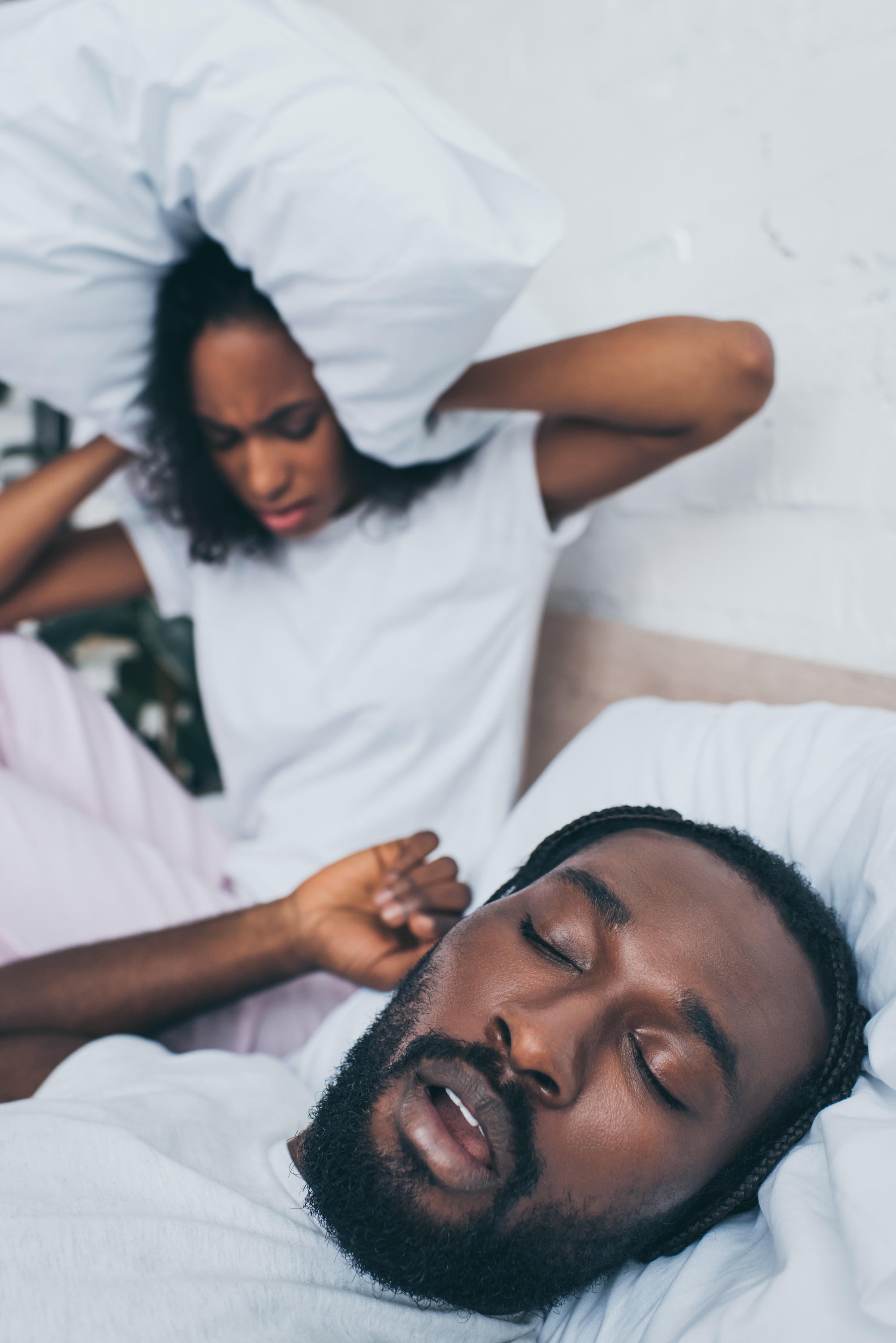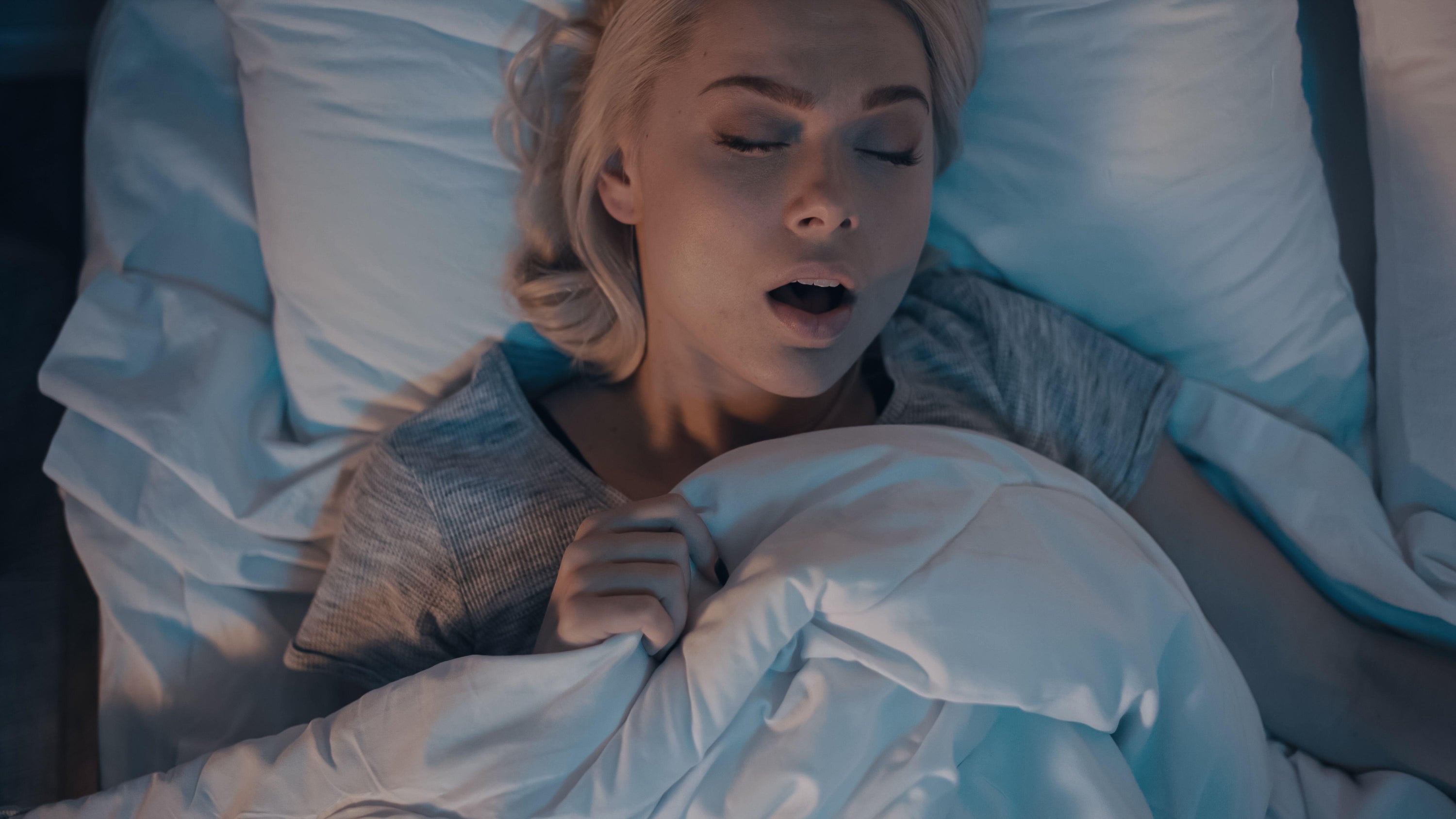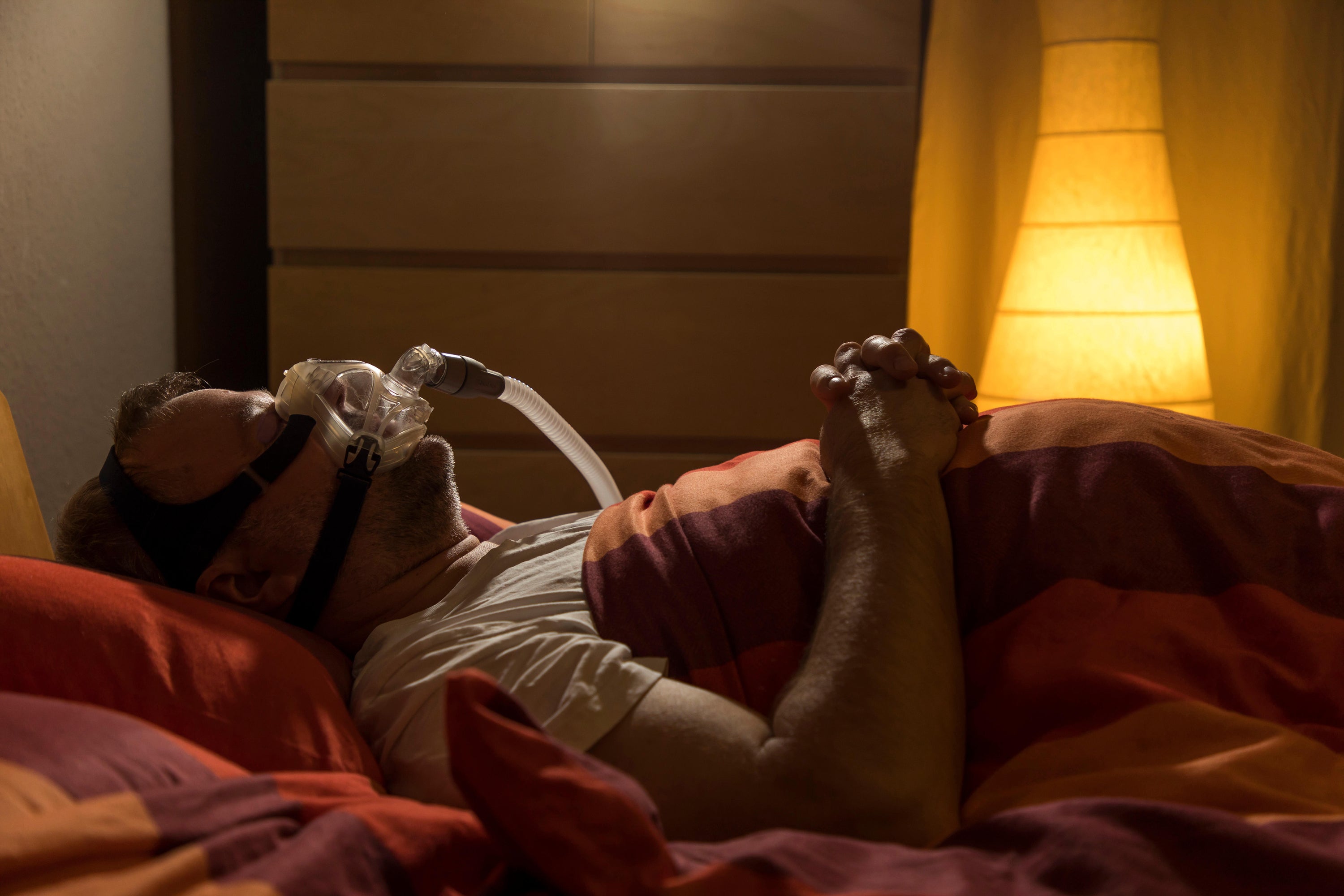
Your support helps us to tell the story
In my reporting on women's reproductive rights, I've witnessed the critical role that independent journalism plays in protecting freedoms and informing the public.
Your support allows us to keep these vital issues in the spotlight. Without your help, we wouldn't be able to fight for truth and justice.
Every contribution ensures that we can continue to report on the stories that impact lives

Kelly Rissman
US News Reporter
An epilepsy drug could help people millions of people in the UK who snore y at night.
Sulthiame, a drug sold under the brand name Ospolot, appeared to reduce symptoms of obstructive sleep apnoea in a recent international clinical trial of 298 patients.
Obstructive sleep apnoea, which is estimated to affect 1.5 million adults in the UK, can lead to serious issues such as high blood pressure, diabetes, heart disease and stroke.
Lead author Jan Hedner, professor of respiratory medicine at Sahlgrenska University Hospital, found after 12 weeks, those taking Sulthiame had up to 50% fewer occasions where their breathing stopped and higher levels of oxygen in their blood during sleep. The effects were most marked in the highest doses of the drug.
Here’s what you need to know:
What is sleep apnoea?
“Sleep apnoea is a condition in which a patient stops breathing momentarily, but repeatedly, during sleep,” says professor Bhik Kotecha, consultant ear, nose and throat (ENT) surgeon at Nuffield Health Brentwood Hospital.
According to the NHS, the most common type is obstructive sleep apnoea (OSA).

“It happens when the muscles around your throat relax during sleep,” explains Dr Justin Pepperell, consultant physician at Nuffield Health Taunton Hospital. “This narrows the airway causing turbulent airflow, which results in snoring, as the walls of the airway vibrate. OSA occurs when the airway is so narrowed or floppy that it closes off completely as you try to breathe in.
“Your brain reacts to the lack of oxygen by shocking your body out of deep sleep, usually with a loud snort.”
A common misconception is that snoring and sleep apnoea are the same thing.
“Snoring is a symptom of sleep apnoea, but not all snorers have the condition,” clarifies Theresa Schnorbach, psychologist and sleep expert at Emma – The Sleep Company.
What causes snoring?
Snoring is common in adults and children (Alamy/PA)
“Snoring occurs as a result of a turbulent airflow and can affect both children and adults,” highlights Kotecha. “If the airway becomes constantly obstructed then the patient could develop sleep apnoea.”
Children often snore due to enlarged tonsils and adenoids.

“There is plethora of evidence that demonstrates that the removal of tonsils and adenoids in these children dramatically improves their quality of sleep as well as their cognitive function,” notes Kotecha.
“In adults, the problem could be due to an obstruction in the nose as a result of a deviated nasal septum or nasal polyps. More commonly it is the redundant, floppy soft palate in the throat that is the culprit,” adds the ENT surgeon.
What are the symptoms?
“The main symptoms of sleep apnoea include snoring, poor and fragmented sleep, periodic gasping for breath, morning headaches and daytime sleepiness,” says Kotecha.
But, because the majority of symptoms happen when you are asleep, it can be hard to detect.
“Snoring and sleep apnoea can be difficult to detect, especially if you sleep alone,” says Schnorbach. “So if you are concerned that you might have sleep apnoea, either enlist the help of your sleeping partner or alternatively you can use sleep detection apps, which record and notify you of your sleep activity such as snoring and coughing.”
When should you seek medical advice about snoring?
The impacts are similar to a poor night’s sleep in the short term, however if left untreated it can have more serious effects on your health.
“Sleep apnoea is a serious health condition,” stresses Schnorbach. “In the long-term, sleep apnoea can lead to sleep deprivation and serious health consequences including putting you at a higher risk of conditions like diabetes and heart disease, weakening the immune system, weight gain, and mood swings.”
“Snoring and sleep apnoea can also put a strain on relationships,” notes Schnorbach. “Some couples practise ‘sleep divorces’, where partners sleep in separate rooms or beds instead of sharing. It can be an effective way to improve sleep quality and relationships.”
The NHS website advises anyone experiencing any of the main symptoms of sleep apnoea to contact their GP.

If a GP thinks you might have OSA, they may refer you to a specialist sleep clinic for tests.
How can it be treated?
The effects of Sulthiame still need to be investigated further, but other treatments are available.
“Sleep apnoea treatment options include nasal CPAP (continuous positive airway pressure) and oral appliances, such as mandibular advancement devices or novel devices such as eXciteOSA,” says Kotecha. “Medical treatment with nasal sprays and antihistamines are also available. These may help patients with allergic rhinitis by improving breathing through the nose and thus improve snoring.”
Kotecha says lifestyle changes such as weight loss and reduction of alcohol intake can also help.
Furthermore, different surgeries such as minimally invasive radiofrequency surgery, tonsillectomy and laser or robotic surgery can also be offered to select patients.
“Minimally invasive radiofrequency surgery can improve the upper airway by shortening and stiffening the soft palate, reducing the bulkiness of the tongue and improving nasal patency,” explains Kotecha.
Loud disruptive snoring could be a symptom of something more serious.







